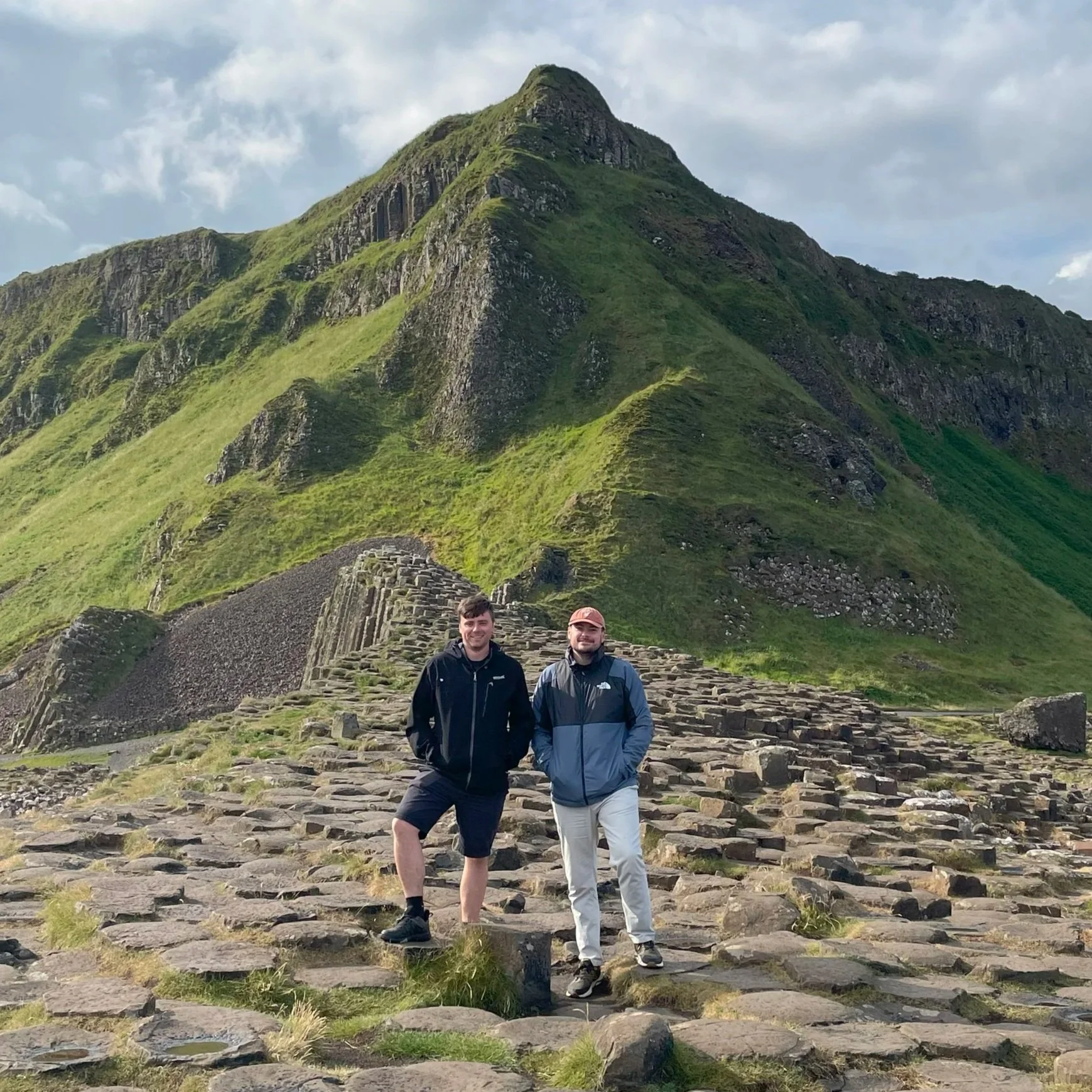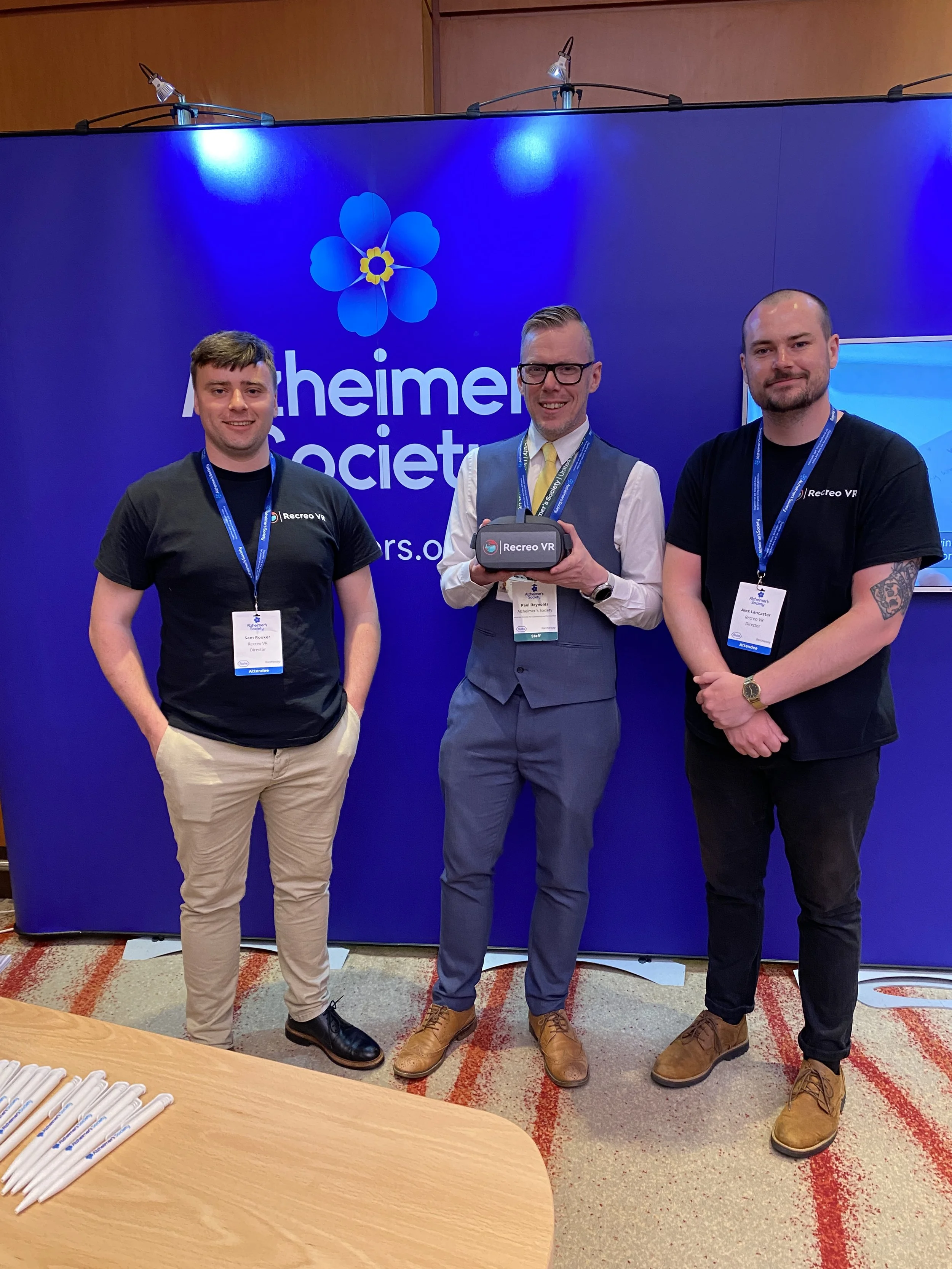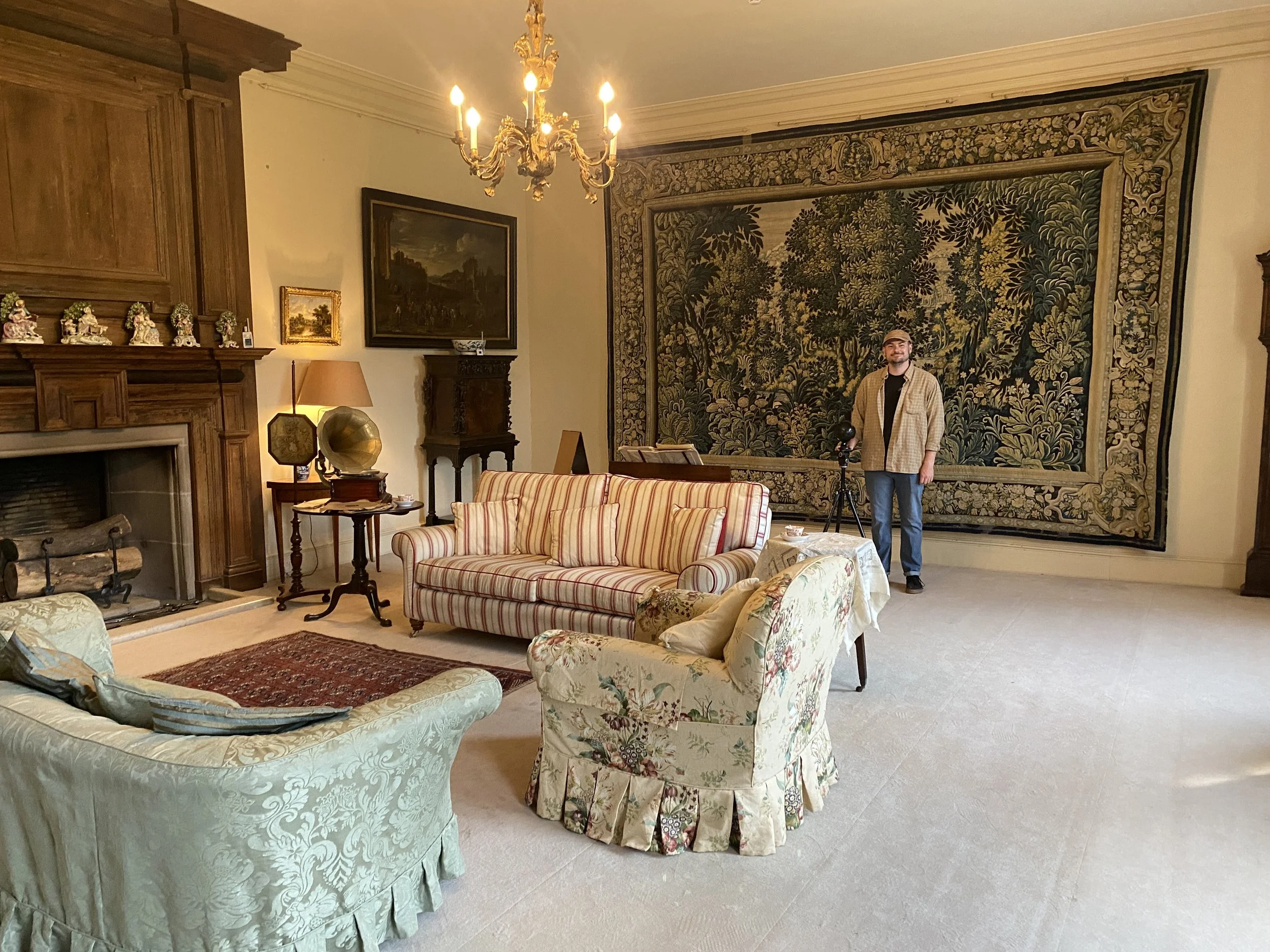About Us
Our Story
Meet Alex and Sam, the founders of Recreo VR®.
Their journey started when they both had loved ones in care during the challenging times of COVID-19. Inspired by these experiences, they created Recreo VR to bring joy and meaningful enrichment to those who need it most by introducing virtual reality into everyday care settings.
In memory of Sam’s Nana, Joyce
What we do
Recreo VR® provides virtual reality care solutions for older adults, dementia patients, and individuals living with learning disabilities and autism, creating opportunities to improve overall well-being, build stronger social connections, spark memory recall, and provide calming spaces that bring comfort and reassurance.
When most people think of virtual reality, they imagine climbing mountains, walking across planks high above the ground, or riding fast roller coasters. That is not what we do.
Instead, we create safe and calming virtual environments designed specifically for social care and healthcare settings.
Our immersive care technology gives residents the chance to enjoy 360° virtual experiences that enrich daily life. From exploring new cultures and destinations to relaxing in peaceful natural surroundings, our solutions offer meaningful activities that support wellbeing and enhance quality of life across the care sector.
Most of the settings are filmed and created by our team, ensuring each experience feels authentic and personal. We are continually adding new scenarios, so there is always something fresh and engaging for those you support.
Our Partners
We are proud to have established a strong network of partnerships with leading organisations, including the Alzheimer’s Society, The National Trust, Cygnet, Barchester, and many more.
By working closely with experts, we ensure that every virtual environment is meaningful, accessible, and tailored to the real needs of the people who use it.
Our approach is backed by research and shaped by the expertise of healthcare professionals, charities, and community groups. This means every virtual environment is designed to have a real impact.
Research & Evidence
Our VR services are grounded in research.
Virtual reality is a proven, evidence-based tool that enhances care, improves wellbeing, and supports meaningful connections across a wide range of settings.
Dementia Care & Reminiscence
Research consistently shows VR can reduce agitation, ease behavioural symptoms, and unlock memories for people living with dementia.
- A systematic review found VR significantly reduced depressive symptoms in dementia and was well-accepted in care environments. (Zhang et al., 2025)
- Randomised controlled trials have shown VR reduces aggression, restlessness, and negative behaviours, improving quality of life for care home residents. (Jang et al., 2024)
- Pilot studies demonstrate immersive reminiscence sparks spontaneous memory recall and story-sharing, strengthening bonds with carers and families. (Rose et al., 2020)
Learning Disabilities & Autism
Immersive VR is being used as a powerful tool to promote engagement, learning, and social development for autistic people and those with learning disabilities.
- A systematic review of 14 studies found VR significantly improved social skills in autistic children and adolescents, particularly in high-functioning profiles. (Zhao et al., 2025)
- Controlled studies show VR interventions enhance cognition, imitation, and social communication in autistic children. (Wang et al., 2022)
- Research highlights that strengths-based VR design supports autistic users by leveraging positive feedback and visual learning strengths. (Parsons et al., 2023)
Mental Health & Wellbeing
VR provides safe spaces for relaxation, mindfulness, and emotional regulation, making it an effective tool for mental health support in both clinical and community settings.
- A UK pilot study found VR relaxation reduced stress and anxiety for people with complex mental health needs. (Riches et al., 2024)
- Research with older adults found VR improved mood, reduced loneliness, and increased positivity, with over 60% reporting less isolation after sessions. (Stanford University, 2021)





